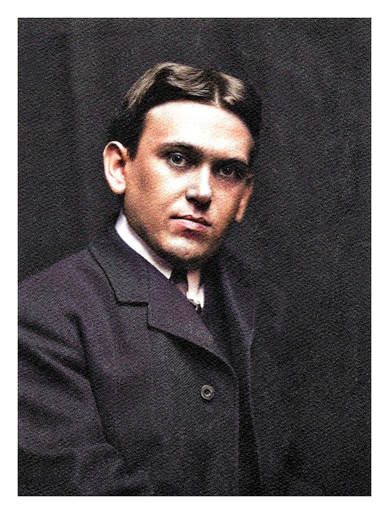Above Alan Fletcher [British designer], model of one of twelve proposals for outdoor drinking fountains (made in stone, one meter high), in which each fountain is shaped to form the silhouette of a famous cultural figure, through reversible figure-ground. This one is the silhouette of Albert Einstein. As reproduced in Fletcher, Picturing and Poeting. London: Phaidon, 2006, p. 103.
•••
Vyvyan Beresford Holland [the second son of Oscar Wilde], An Evergreen Garland. London: Cassell 1968, Page 156-157—
My next case [of how to deal with boring people] is that of the horrible habit of repetition, often known as "twicing." This is the offense of telling the same person the same thing twice. Unfortunately, everyone over the age of forty is to some extent a "twicer," because he refuses to remember to whom he has told his stock stories, and he is apt to forget any new stories he has heard. He is also apt to be much too interested in his past life to care very much whether his victim has heard his stories, so long as he can get someone to listen to them once more, particularly if they happen to be true, or were true before they were embroidered out of all recognition. And it is almost worse if he says, "Do stop me if I’ve told you this before," because one should never run the slightest risk of repeating oneself to other people. On the whole, it is far better not to tell stories at all unless either you invited them yourself or they are very short.
The remedy for "twicing" is contained in:
Rule VI.—As soon as one is certain that a case of "twicing" is about to occur, one should interrupt the "twicer" roughly by telling him that his story reminds you of another one, and then proceed to tell him his own story, with added detail. That is, if he will let you.





























